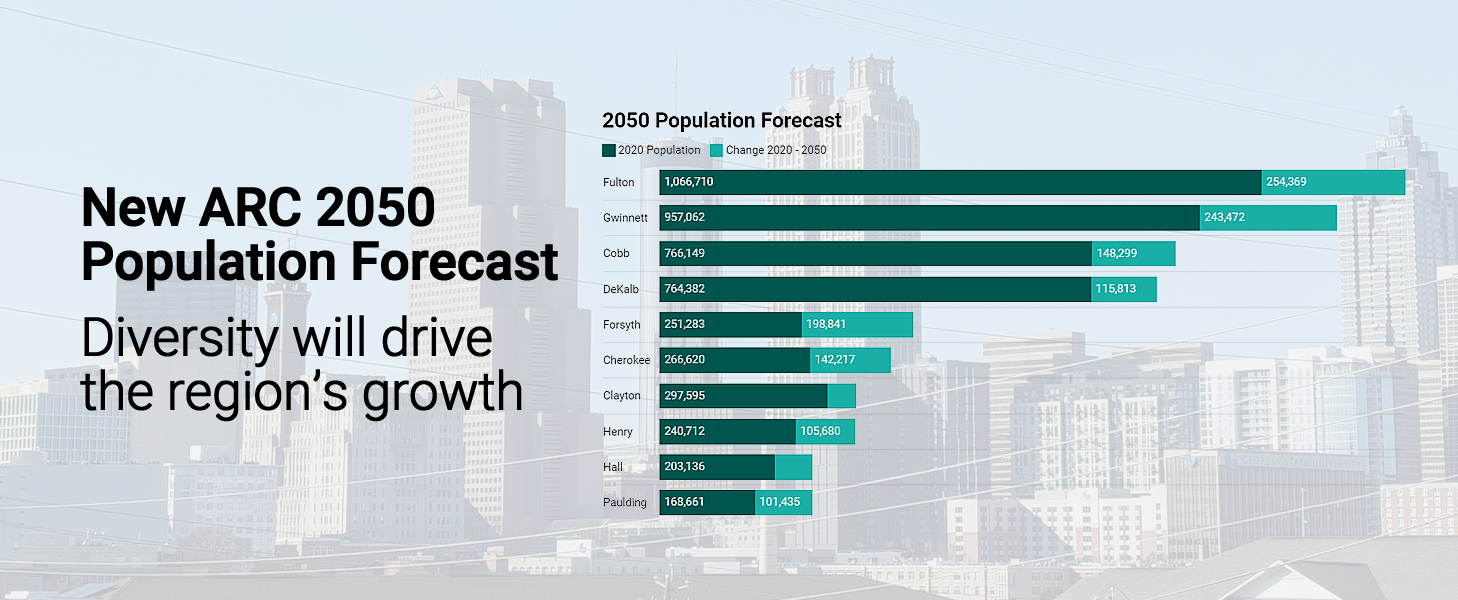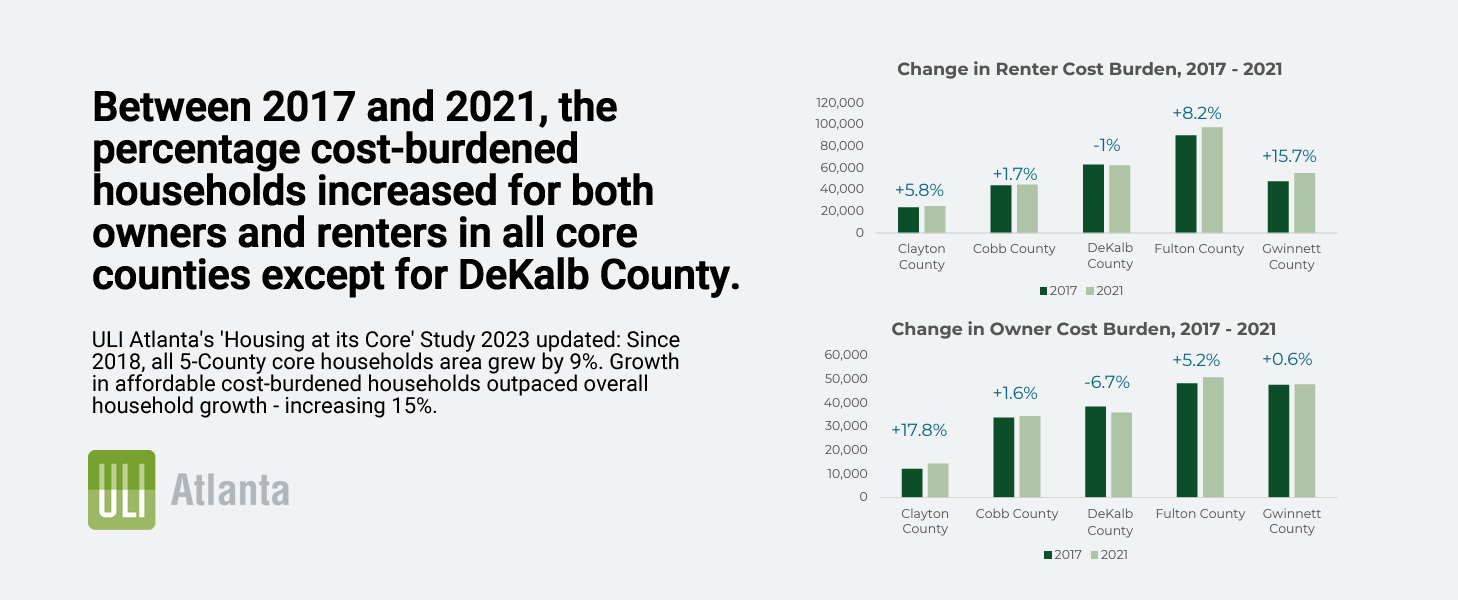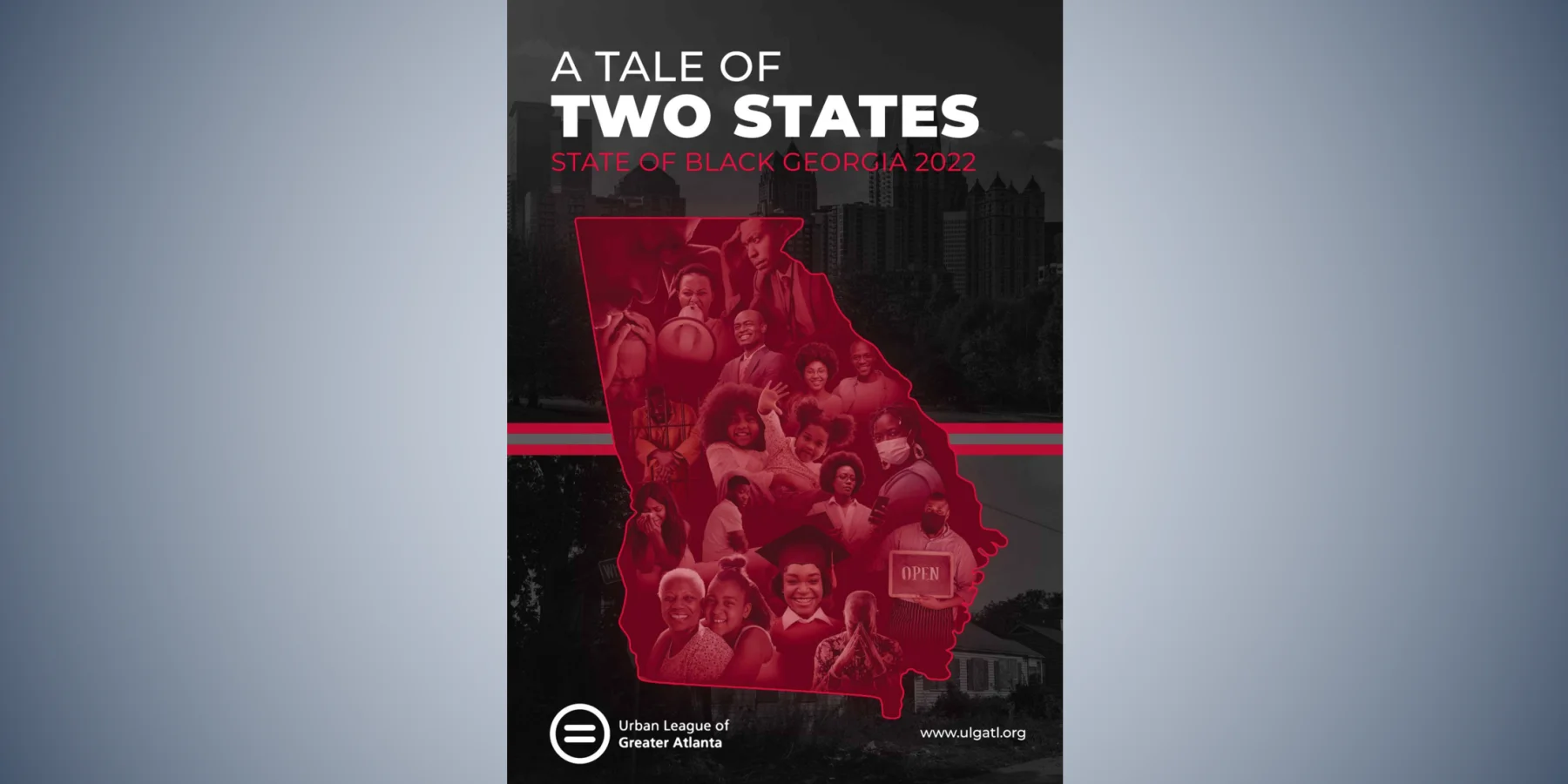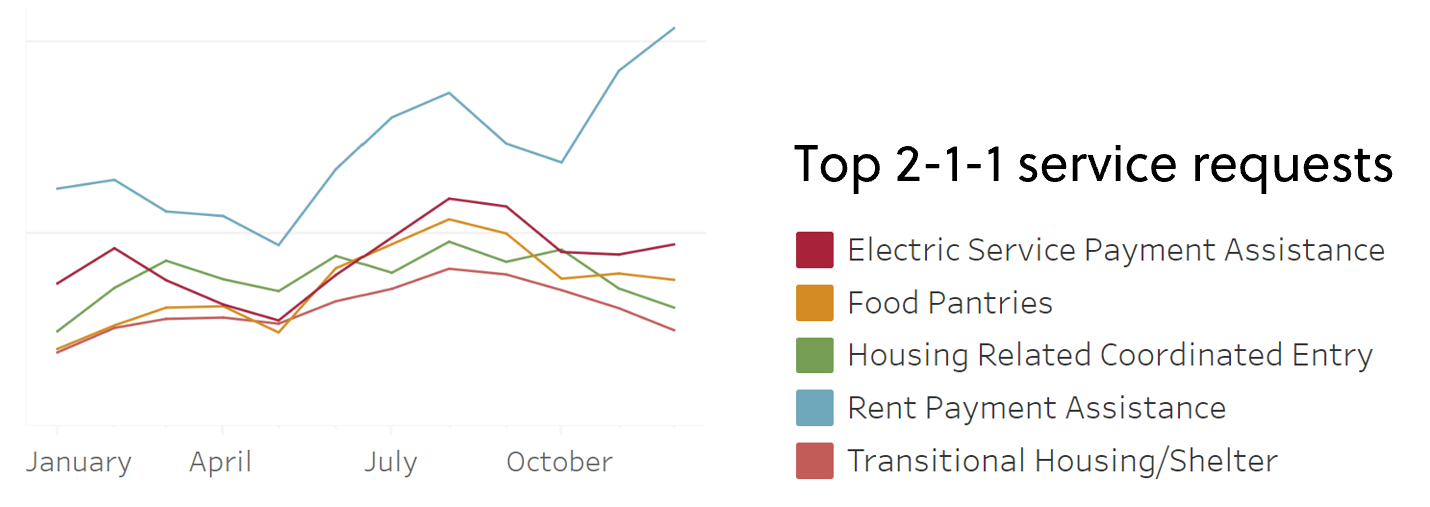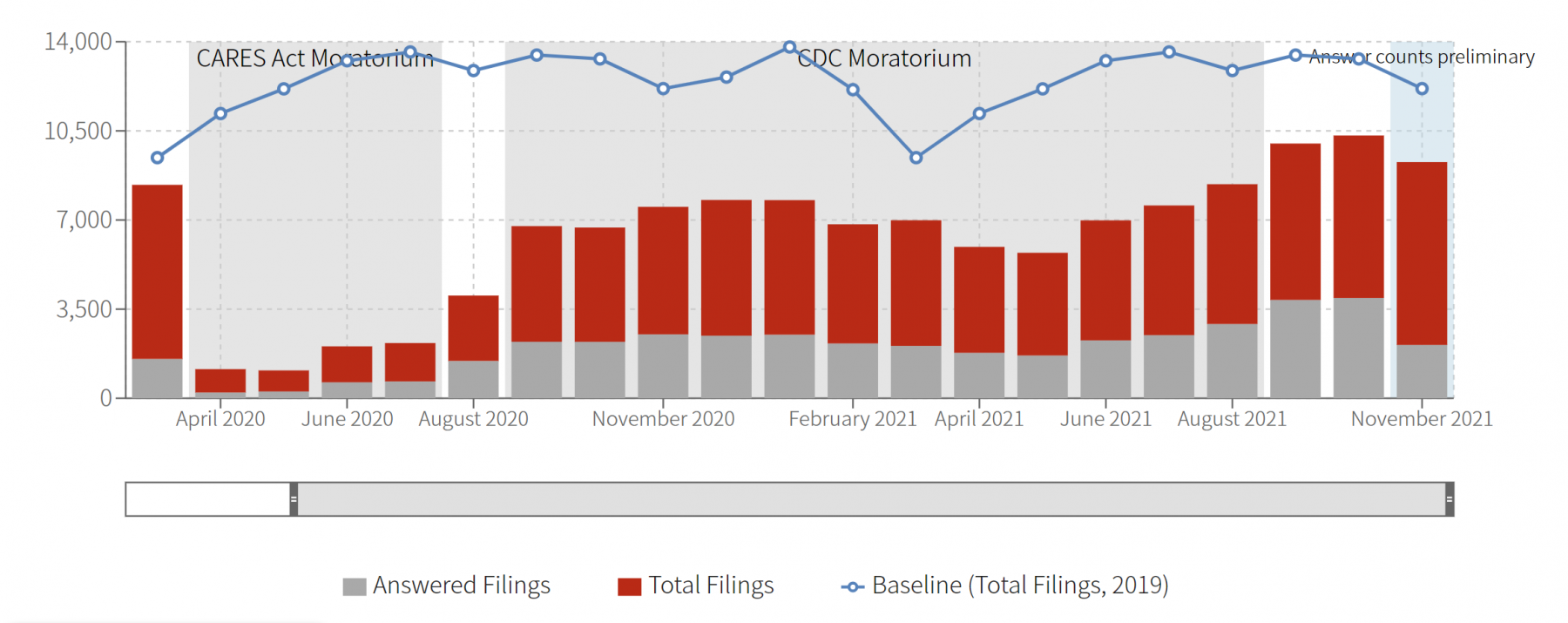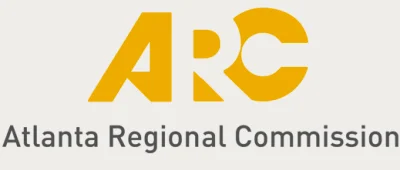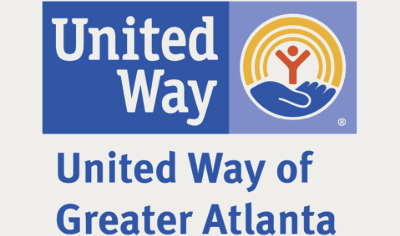New ARC 2050 Population Forecast: Diversity will drive the region’s growth
This month, the Atlanta Regional Commission (ARC) published the Series 17 small-area forecasts to support the newly adopted Metropolitan Transportation Plan (MTP). This report provides population forecasts down to the census tract level, and with race and age data at the county level.
Here are the highlights:
- Diversity will drive the region’s growth: Hispanic and Latino residents are forecast to account for 21% of the region’s population in 2050, compared to 12% today
- The region’s population of older adults will grow at a fast rate: In 2050, nearly 12% of the region’s population will be aged 75 or older, compared to 5% today.
- Growth to remain strong, but slower than previously forecast: The new 2050 population forecast is about 700,000 below what was forecast in the previous series adopted in 2020.
- Fastest growth to occur in outer counties of the 21-county region: Forsyth (79%), Barrow (71%), Paulding (60%), Cherokee (53%), Walton (51%), and Coweta (51%).
- There will still be a strong population growth in the region’s core, too: The region’s five core counties are forecast to add a total of 812,000 people by 2050, representing nearly half of the region’s total growth.
- Employment in the Professional, Business and Technical Services sector will pace job growth in the region.


